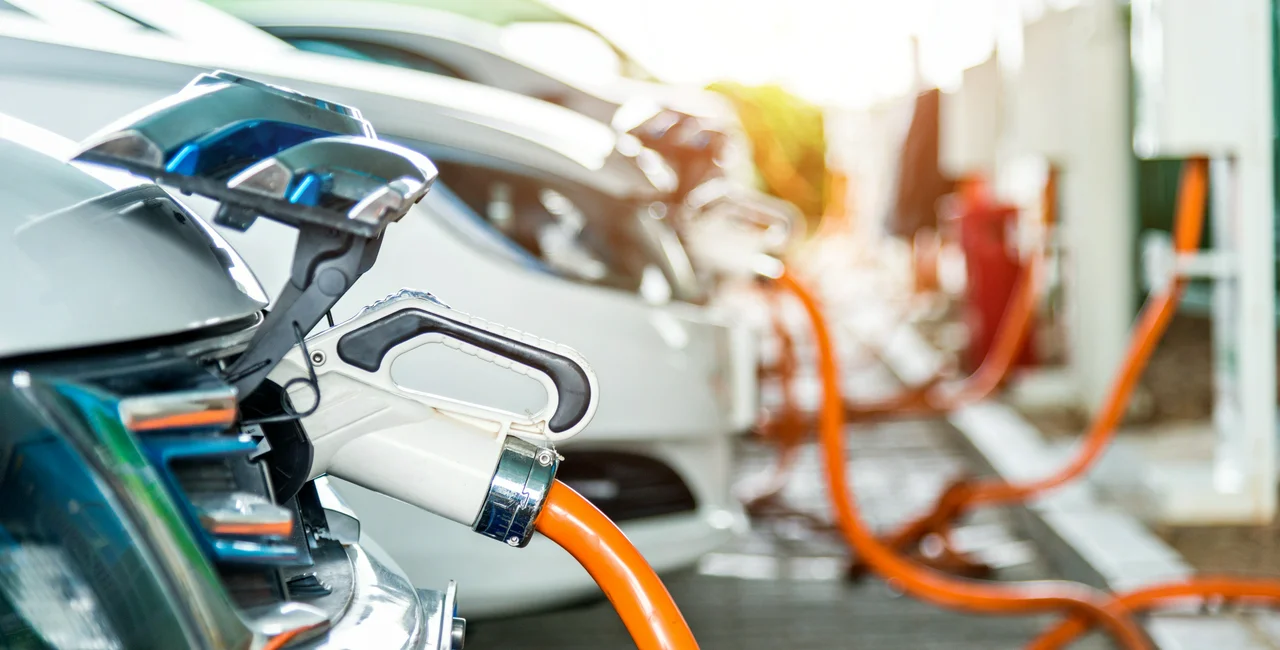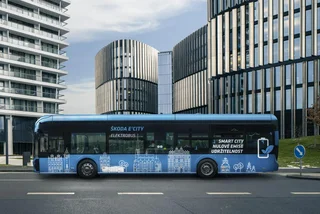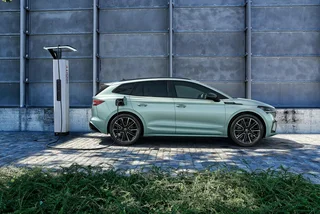European Union states have agreed on climate goals that will make it virtually impossible to sell new cars with internal combustion engines as of 2035, among other things. The final form of the new rules will be negotiated by member states during the six-month Czech EU presidency, which starts on Friday.
The move is not unexpected. Czech automaker Škoda, the largest employer in the Czech Republic, is already transitioning to making electric cars or components at all of its Czech plants. Hyundai, which has a factory in Nošovice, began making an electric model there in 2020. The city of Prague is also getting ready for the transition by building a network of charging stations.
EU environment ministers approved five proposals from a package put forward by the European Commission a year ago. Under it, the EU should cut its total greenhouse gas emissions by at least 55 percent by 2030 compared to 1990 levels.
French Energy Minister Agnès Pannier-Runacher, who chaired the last ministerial meeting under France’s EU presidency, said the transition to electric cars would be “a major challenge for our automotive industry,” but the move is a necessity. She added that China and the U.S. were already moving heavily into the electric vehicle sector.
Germany, which is the home of Volkswagen Group, which includes Czech-based automaker Škoda, pushed for a compromise to allow for some vehicles that use synthetic fuels or hybrid vehicles that use both synthetic fuels and electric power.
"The sale of cars with combustion engines will not end in 2035; cars can continue to be sold if they have a clean alternative fuel," Czech Environment Minister Anna Hubáčková said.
The 2035 deadline may not be final, as EU countries agreed that the European Commission will assess in 2026 whether the EU can actually achieve the target or, for example, whether to postpone it.
Czech automakers, though, are not waiting. Škoda began making batteries for Volkswagen’s electric cars at its plant in Mladá Boleslav in May this year. It is the only plant outside of Germany to do so for the group.
“Our objective is clear: We want to produce e-components or e-vehicles at all three Czech plants by 2030,” Michael Oeljeklaus, Škoda Auto board member for production and logistics, said when battery production was launched.
Škoda is pursuing a strategy it calls “Next Level – Škoda Strategy 2030,” under which it aims to safeguard existing jobs over the long term and create new ones as it transitions to electric vehicles. By 2030, the company expects to have increased the share of all-electric car sales in Europe to between 50 and 70 percent. Škoda introduced its first electric car in 2019, the Citigo-e iV.
South Korea–based Hyundai in March 2020 began making the Kona Electric in the Czech Republic and is planning on taking a large part of Europe’s electric car market.
“With the start of production for the Kona Electric at [the Czech factory], Hyundai is further cementing itself as a leading provider of electro-mobility solutions in Europe,” Dong Woo Choi, president and CEO of Hyundai Motor Europe, said at the time.
The third large car maker with a Czech factory, Toyota, has a factory in Kolín, where they currently make two models with conventional combustion engines. They have not announced specific plans for the Kolín factory but the brand has a global goal of having 100 percent of its luxury vehicles in Europe, North America, and China running on electric power by 2030 and all of its cars by 2035.
While many people would like to have an electric vehicle, one stumbling block has been the lack of charging stations. Prague last year announced its intention to build a network of between 3,000 and 6,000 charging stations on public lighting polls by 2027. A pilot project began in 2020 in 13 lamp polls, and that is currently being expanded. The recharging stations are being placed across the city, and not just in the center, so Prague residents will have easy access to them.












 Reading time: 3 minutes
Reading time: 3 minutes 





























